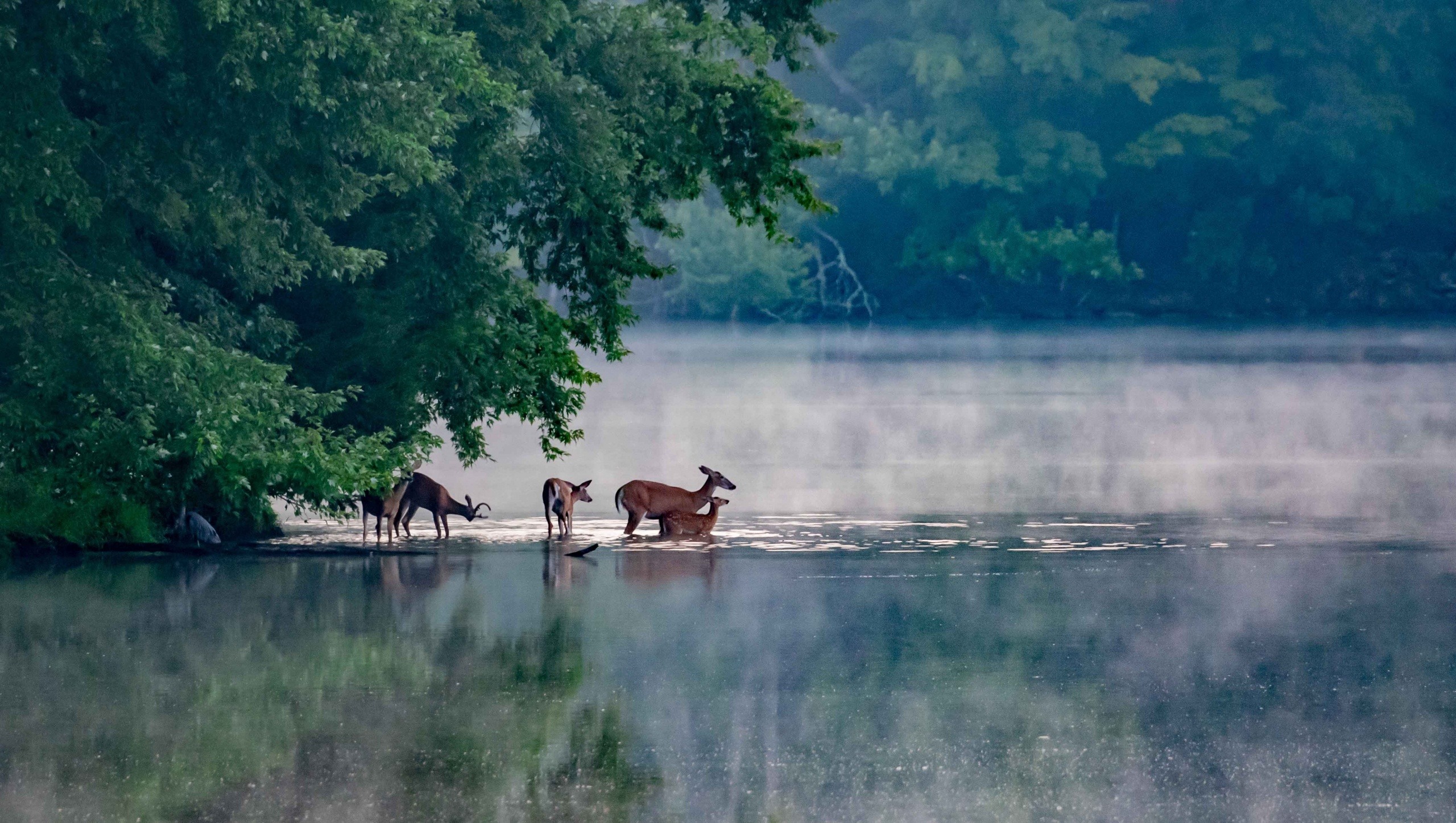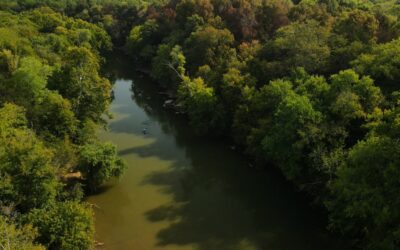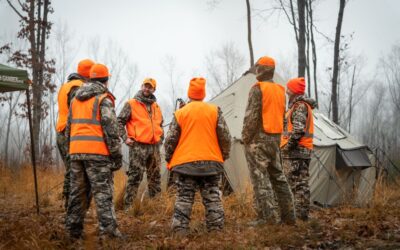As the 2025 Legislative Session and the season setting period for the Fish and Wildlife Commission have wrapped up, here is where things stand on the bills and regulations of interest that Tennessee Wildlife Federation has been tracking.
Our work at the General Assembly and with the Commission isn’t possible without our supporters. Many of you engaged on issues, called your legislators and commissioners, or sent them an email expressing your position on various issues. Thank you for all that you do to support the Federation.
SB670/HB541 – Classification of property as a wetland
Our Position: Neutral as amended
Status: Bill Passed
As it was originally written, this bill would have removed all state-level protection from wetlands in Tennessee, and this would have put over 300,000 acres of wetlands at risk. In a move not seen enough in politics, both sides got together and forged amendments through both the Senate and House which will allow responsible development to continue while also protecting our critical wetlands. Through this amendment on the bill secured by the Federation, the estimated impact of this legislation was reduced to around 70,000 acres.
You can view the Federation’s full statement on the wetlands legislation here.
SB843/HB842 – Expanding allowable uses of the Wetlands Acquisition Fund
Our Position: Neutral
Status: Bill Passed
The Wetlands Acquisition Fund, funded by a tax on the sale of real estate, has generated significant revenue during Tennessee’s Real Estate boom. This fund is used to purchase wetland property for conservation. Over the past decade, the ability to use these funds for the management of the lands purchased with them has been a priority for the Tennessee Wildlife Resources Agency (TWRA). Given these and additional funding needs, this bill aimed to allow the agency to expend some of these funds on operational and law enforcement expenses. However, the bill requires that these additional expenses are only allowed if the fund balance exceeds $6,000,000, ensuring this amount is left to meet the original intent of the Fund. The Federation’s work on this bill was to ensure that it still meets the intended use of the Fund we helped create in 1986.
SB964/HB1149 – Prioritizing use of TWRA boat ramps for commercial paddlecraft outfitters
Our Position: Opposed
Status: Coming back next year
What began as a bill which put many important fishing areas off limits was amended to one which would prioritize a commercial paddlecraft operator’s access to TWRA boat ramps over private users (including hunters and anglers). The bill would also set a small per-boat fee for each vessel these outfitters send down the river, and require retailers to track how much sales tax revenue they generate through the sale of paddlecraft-related equipment.
SB206/HB646 – Use of certain colors while hunting
Our Position: Support
Status: Bill Passed
This will allow big game hunters during seasons requiring blaze orange to wear daylight fluorescent pink if they desire. The 500-square inch rule applies with pink as well.
SB130/HB175 – Use of drones to locate and retrieve deer that have been wounded by hunters
Our Position: Support
Status: Bill Passed
In many states, drones have become an extremely effective, and popular, method of recovering lost deer. This authorizes the Tennessee Fish and Wildlife Commission to set up a program authorizing the use of drones to locate and retrieve deer which have been wounded by hunters.
SB869/HB938 – Creates a bait privilege license to allow hunting with bait
Our Position: Neutral as amended
Status: Bill Passed
The “baiting bill” will create a license allowing hunting of whitetail deer using bait on privately-owned or privately-leased land. Even hunters normally exempt from licenses would have to obtain this license with fees set at $50 for residents and $100 for non-residents. It grants the Commission authority to adjust fees as necessary, and to make rules by August 1, 2026, specifying acceptable bait types, permitted quantities, and conditions for license use. Additionally, it grants TWRA the authority to suspend baiting privileges to prevent disease spread.
Note: This license will not go into effect until the 2026-27 hunting season.
SB863/HB938 – Guide licenses for person who work as guides at Reelfoot Lake
Our Position: Support
Status: Bill Passed
This bill directs the Tennessee Fish and Wildlife Commission to make rules to create and issue guide licenses for person who work as waterfowl guides at Reelfoot Lake. It also defines the word “guide” as it relates to this bill.
SB14/HB24 – Increased penalties for various wildlife violations
Our Position: Support
Status: Bill Passed
Increases the penalty from a Class C misdemeanor to a Class B misdemeanor for removing a wild animal, wild fowl, or fish while trespassing on land.
SB207/HB1325 – Farmland and Forestland Preservation Fund
Our Position: Support
Status: Bill Passed
Requires the Tennessee Department of Agriculture to develop a grant program within the Farmland Preservation Fund for farmland and forestland owners to enroll their land in a permanent conservation easement held by a qualified easement holder under certain conditions. Governmental entities are not eligible to participate in a grant program.
SB297/HB752 – Lifetime sportsman licenses for adopted children
Our Position: Neutral
Status: Bill Passed
Extends the time within which the guardian for an adoptee who is less than 13 years of age may apply for a lifetime sportsman license for adopted children from 36 months immediately following the adoption date to any time following the adoption that is prior to the adoptee’s 13th birthday.
SB323/HB422 – Naming authority of the Tennessee Fish and Wildlife Commission
Our Position: Neutral
Status: Bill Passed
Authorizes the Fish and Wildlife Commission to name real property, infrastructure, improvements to infrastructure, or features under TWRA’s jurisdiction.
SB520/HB220 – Expands areas served by West Tennessee River Basin Authority
Our Position: Support
Status: Did not get funded, stalled for now
This bill expands the areas served b the West Tennessee River Basin Authority to include Perry, Stewart, Houston, and Humphreys Counties.
SB561/HB530 – Removes the monitoring requirement for boating safety examinations
Our Position: Neutral
Status: Bill Passed
Prohibits a person from operating any vessel subject to regulation in state waters unless that person has completed a National Association of State Boating Law Administrators (NASBLA)-approved boating safety examination that is approved by TWRA and has received a certificate from TWRA as evidence of successful completion of a NASBLA. Allows the Commission to set the fee for obtaining a certificate of completion of boating courses and a replacement for a certificate of completion of boating courses.
SB1140/HB918 – Issuance of temporary hunting licenses for disabled veterans
Our Position: Neutral
Status: Bill Passed
Requires issuance of temporary hunting licenses, of up to seven days duration and at no cost, to disabled veterans participating in hunting experiences sponsored and paid for by not-for-profit organizations. Authorizes the Tennessee Fish and Wildlife Commission to make rules necessary to effectuate this amendment.
Duck River Funding
Last fall, Governor Lee made conservation of the Duck River a priority for his administration by signing Executive Order 108. among other things, this executive order sets up the Duck River Watershed Planning Partnership—which the Federation’s Director of Conservation Policy, Horace Tipton, wits on—that will oversee the development of water supply planning in the Duck River Watershed and advise the Governor on conservation of the Duck River.
This session, the Governor doubled down on this prioritization by requesting $124.5 million in the budget for planning and infrastructure required to carry out this plan. Ultimately, this request was reduced to $89.5 million for the project. The Federation is strongly supportive of this funding and looks forward to working with other members of the Partnership to carry out this greatly-needed water supply and conservation work.
Fish and Wildlife Commission—Season Setting
On April 24 and 25, the Tennessee Fish and Wildlife Commission held their season-setting meeting in Nashville. It was an active meeting with more of the sporting public on hand than normal.
There were quite a few public comments made each day during the Big Game Hunting Seasons & Bag Limits period. The Federation requested straight-wall cartridges be made legal during Tennessee’s muzzleloader season and also to move opening day of turkey season one week earlier as a compromise. In the end, no changes were made to big game seasons and limits.
The biggest changes came in waterfowl due to new U.S. Fish and Wildlife Service guidelines. The pintail limit is changing to three per day after decades of stricter limits. While that was good news on the duck front, blue-winged teal have experienced recent declines, and the special early season is being shortened. For Tennessee, that means there will be no teal-only days, and they can only be hunted during the five days of wood duck season.
Looking Towards 2026
With the legislative session and season setting now behind us for the year, the Federation is turning its sights to 2026. Bad bills are always sure to come up, and good bills need the support of sportsmen to make sure they pass. Our wins this year wouldn’t be possible without our supporters—and as we move into 2026, we need long-time and new supporters engaged to make good conservation policies a reality in Tennessee.
If you would like more information on any of the issues above, or if you would like to get further involved with conservation policy in Tennessee, reach out to our Conservation Policy team at policy@tnwf.org.
Featured photo by Marcy Wielfaert




